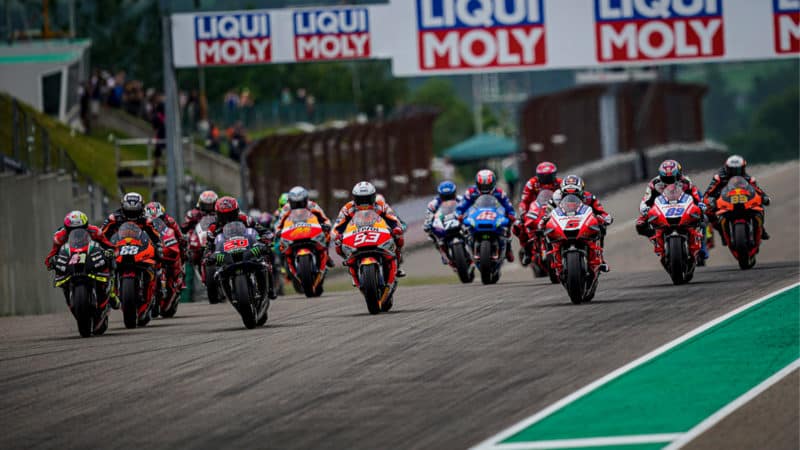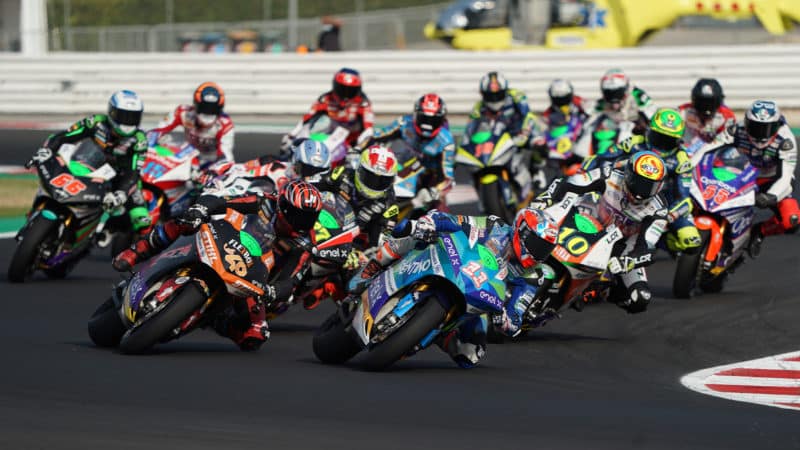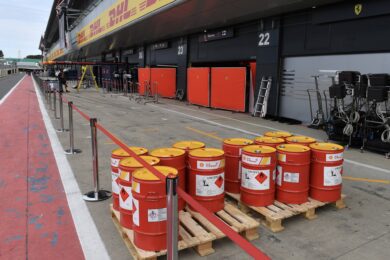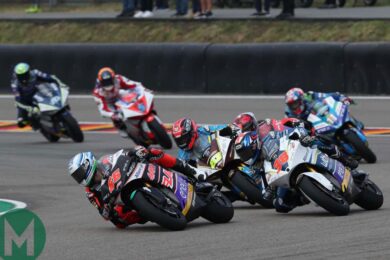For example, motorcycle and environmental journalist Rupert Paul recently converted a Triumph 675 to run on E85, made from apples. It took 2000 fermented and triple-distilled apples to take him 11 miles, including a 159mph run at a test track.
“Bio-fuels are very simple fuels, so we already have some old technologies that allow you to be carbon neutral with internal combustion engines,” says Aprilia’s chief MotoGP engineer Romano Albesiano. “I remember 30 years ago we were making carburettors for motorcycles being shipped to Brazil where they use E100 fuel, which is nothing exotic or super high-tech. And you can have more octane than our current fuel, no problem.
“Then there are new technologies, synthetic fuels, which obtain fuel from a chemical approach, which needs energy, but this can be derived from renewable sources, so you can obtain fuel that releases CO2 when it burns, but you’ve stored the CO2 previously.”
To create a so-called closed-loop system, in which the CO2 emitted by MotoGP bikes at one race is reabsorbed by the fuel produced to power the bikes in upcoming races is the kind of nirvana that humanity is chasing, but these production methods take a lot of energy and cost.
However, closed-loop systems do already exist.
“This is the point – because when you burn wood it’s carbon neutral in a range of time comparable to human life,” adds Albesiano. “Because when the tree grows it captures CO2 and when you burn the wood it releases CO2, so this is the cycle, and you have to look at this as carbon neutral. This doesn’t apply to fossil fuels, because they come from millions of years ago.”
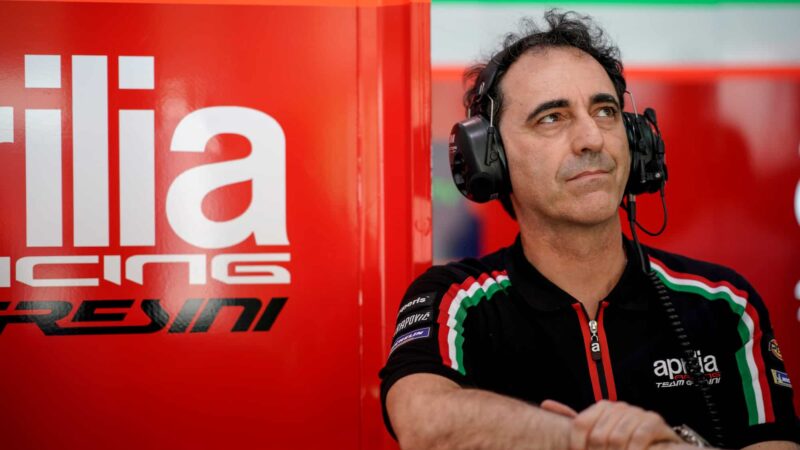
Aprilia’s chief engineer Romano Albesiano, more of a petrol-head than a battery-head
Aprilia
Albesiano, like pretty much everyone else in the MotoGP paddock is a petrolhead, so it’s no surprise that he wants to keep working with the sound and thunder of the internal-combustion engine.
“If the target is to be carbon neutral there are relatively simple and clever ways to get there without abandoning the internal-combustion engine and going to strange technology, like electric or, even stranger, hybrid,” he says. “This is my opinion.
“I think it would be possible to get the same performance as now, more or less, from carbon-neutral fuels, or even more. But, anyway, it would be the same for everybody.”
Of course, making all human activity more sustainable, not just racing, is what really matters.
“In general, transportation accounts for 20 to 25% of total CO2 output, which is an important amount,” Albesiano continues. “But the priority that’s being given to these emissions should be applied to every other area of activity, from industry to farming.
